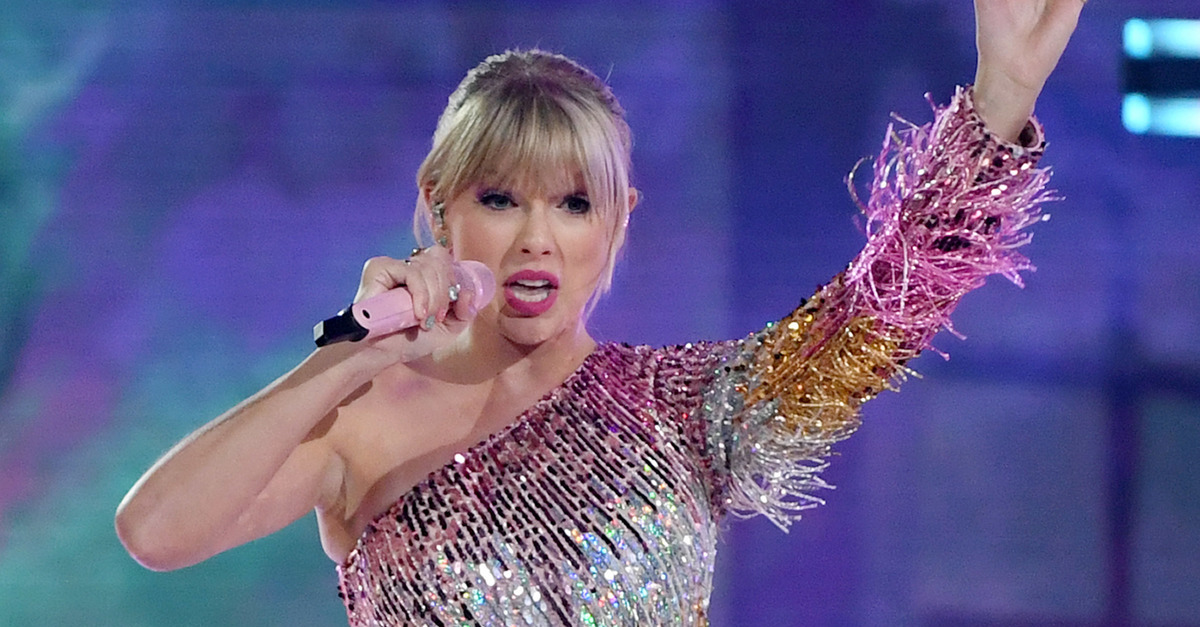
June 1 kicks off Pride Month, a 30-day celebration to honor LGBTQ people and history, and to commemmorate the 1969 Stonewall riots. Just after midnight Saturday morning, Taylor Swift tweeted and instagrammed a copy of a letter she sent to Senator Lamar Alexander (R-Tenn), along with a link to a petition for the Equality Act, and a message encouraging others to contact their senators.
#lettertomysenator https://t.co/EKYMXZw5U9 pic.twitter.com/Ym0mGeOHgc
— Taylor Swift (@taylorswift13) June 1, 2019
In Swift’s letter, she slammed President Donald Trump’s public declarations that his administration supports equal treatment, while opposing the Equality Act for interfering with “parental or conscience rights.” “No,” Swift wrote, “One cannot take the position that one supports a community, while condemning it in the next breath.” She continued to make the point that supporting LGBTQ right is not just right in a moral sense, but also reflects the values of the majority of both Tennesseans and Americans.
Public reaction to Swift’s tweet was swift and strong; within a few hours, #lettertomysenator was trending on Twitter, and praise came rolling in for the singer’s activism.
Okay, Taylor Swift, I see you showing up for the fight! #EqualityAct #PrideMonth https://t.co/dn8zSCr3aB
— Charlotte Clymer(@cmclymer) June 1, 2019
I’m a lesbian and what @taylorswift13 is doing is so important. I signed the petition right away and I’m working on my #lettertomysenator. Make sure you sign the petition as well and share the link! Support the LGTBQ! @taylornation13 pic.twitter.com/jIND4IPHrb
— “Are you Amber???” (@NewYearsTay) June 1, 2019
i already wrote to my senators a few weeks ago and got their responses last week :’) thank u for using ur voice for good and being such an ally @taylorswift13 #lettertomysenator pic.twitter.com/14b6wGwy8F
— jess (@vgkhozier) June 1, 2019
On May 17, 2019, the U.S. House of Representatives passed H.R. 5, known as the “Equality Act.”
The fight for full LGBTQ+ equality is far from over. But I’m glad to see the House passed the Equality Act today to ban discrimination, protect transgender rights, and resist the Trump administration’s efforts to roll back our progress. https://t.co/VzH481kk4s
— Elizabeth Warren (@ewarren) May 17, 2019
If ultimately passed by the Senate, the law would give sexual orientation and identity the same level of protection already afforded to race and national origin under existing federal discrimination laws, such as the Civil Rights Act and the Fair Housing Act. That means discrimination against a person on the basis of sexual orientation or identity would be prohibited as a matter of federal law, instead of relegating the matter to state public accommodation laws.
In many ways, the change can be understood as merely an update as to language. Federal anti-discrimination laws already prohibit discrimination based on gender (statutorily called “sex,” as was the prevailing term when most such statutes were drafted). The Equality Act would expand that definition as follows:
The bill defines:
-
“sex” to include a sex stereotype, sexual orientation or gender identity, and pregnancy, childbirth, or a related medical condition;
-
“sexual orientation” as homosexuality, heterosexuality, or bisexuality; and
-
“gender identity” as gender-related identity, appearance, mannerisms, or characteristics, regardless of the individual’s designated sex at birth.
It would also expand “public accommodations” to include
places or establishments that provide:
-
exhibitions, recreation, exercise, amusement, gatherings, or displays;
-
goods, services, or programs, including a store, a shopping center, an online retailer or service provider, a salon, a bank, a gas station, a food bank, a service or care center, a shelter, a travel agency, a funeral parlor, or a health care, accounting, or legal service; or
-
transportation services.
The Equality Act (and essentially, the general concept of anti-discrimination laws to protect LGBT Americans) has and will continue to be hotly contested. While the bill passed easily in the House, it’ll have a much tougher climb in the Senate.
Opponents’ arguments range from the religious (“the right to discriminate on the basis of sexual orientation is part of guaranteed religious freedom”), to the historical (“unlike race, which is an immutable characteristic, sexual orientation is just a lifestyle choice undeserving of legal protection”), to the foreboding (forced equality for LGBTs would eradicate gender-based differences, such as women’s rights). Still, and as Taylor Swift pointed out, the Equality Act has broad support from many major U.S. companies who have been lobbying for its passage for several years.
[image via Ethan Miller/Getty Images]